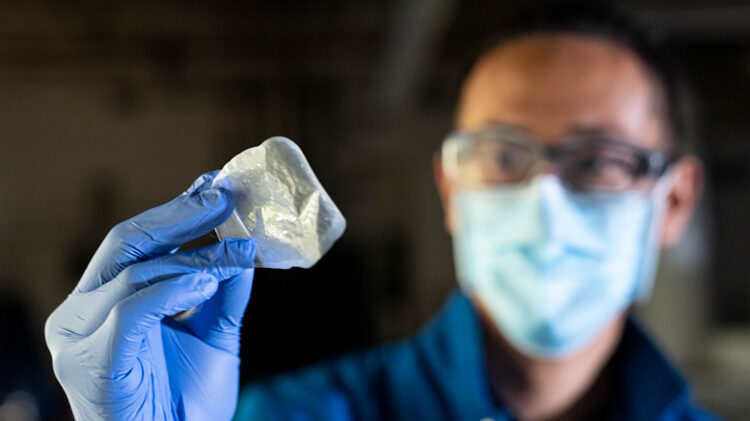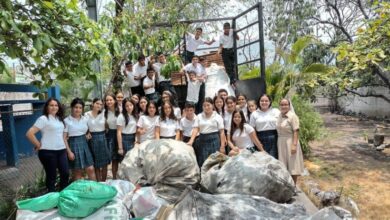
Graduate student Ivan Jayapurna with a sample film of PCL (polycaprolactone), a new, biodegradable polyester plastic. PCL with embedded enzymes has mechanical properties very similar to those of low-density polyethylene, making it a promising future alternative to non-biodegradable plastics. Photo Credit: UC Berkeley by Adam Lau/Berkeley Engineering
Technology USACompostable Plastic Is Now a Reality, Thanks to These Scientists
A team of scientists from the University of California, United States, managed to create a plastic that self-destructs and is fully compostable, solving the prickly problem of plastic waste.
Most “compostable” plastics actually wind up in landfills and last as long as other plastics, because they don’t break down during typical composting. But scientists have found a way to solve this problem – using just heat and water.
“People are now prepared to move into biodegradable polymers for single-use plastics, but if it turns out that it creates more problems than it’s worth, then the policy might revert back,” says Ting Xu, UC Berkeley professor of materials science and engineering and of chemistry. “We are basically saying that we are on the right track. We can solve this continuing problem of single-use plastics not being biodegradable.”
Polyester-eating enzymes are embedded in the plastic while it is made. A degradable polymer wrapping prevents the enzyme from being activated. Only by being exposed to heat and water do the enzymes do their job. Through this process, up to 98% of plastic degrades into small molecules, eliminating microplastics by the same token.



